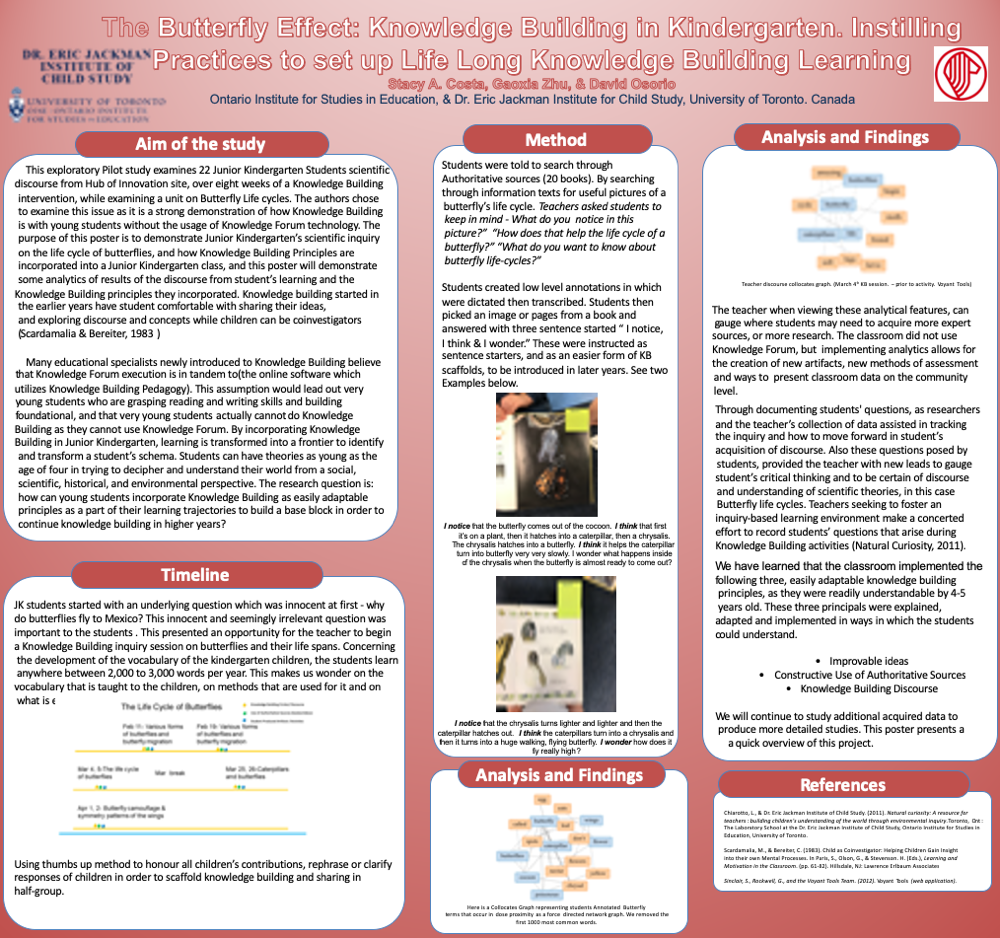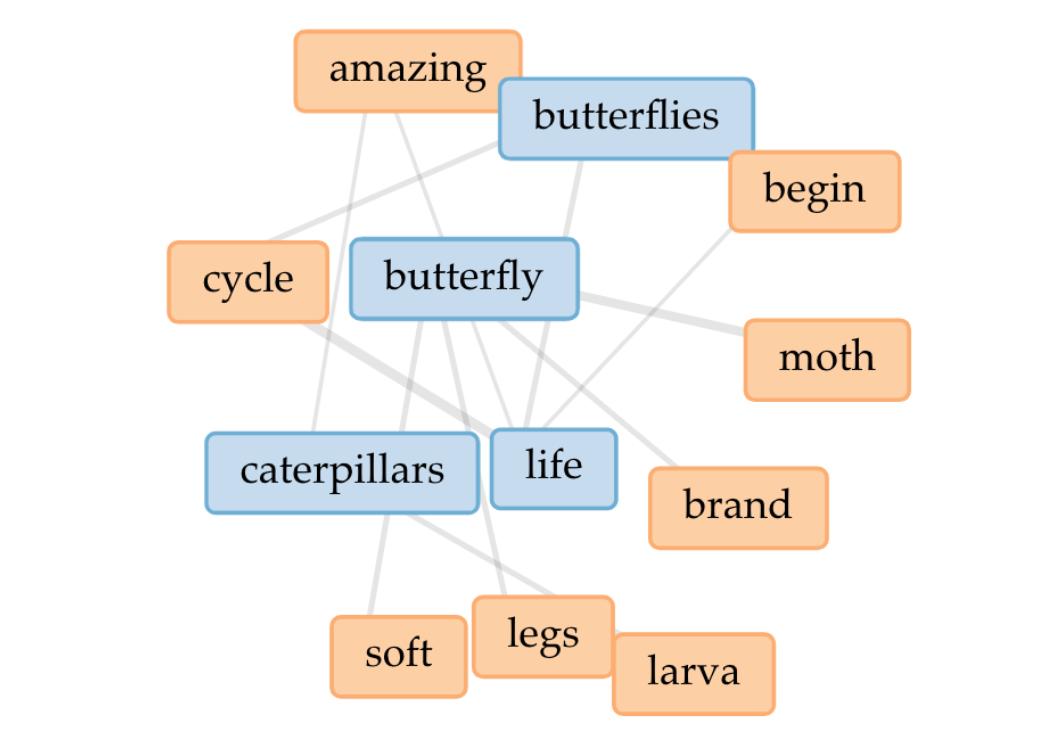
Costa, S., Zhu, G., & Osorio, D. (2019 June). The butterfly effect: Knowledge Building in Kindergarten. Instilling practices to set up life long Knowledge Building learning. Poster presentation at the 2019 Knowledge Building Summer Institute -Around the World: “Knowledge Building Practices and Technology for Global Hubs of Innovation”, June 17-20, Lyon, France.
This exploratory Pilot study examines 22 Junior Kindergarten Students scientific discourse from Hub of Innovation site, over eight weeks of a Knowledge Building intervention, while examining a unit on Butterfly Life cycles. The authors chose to examine this issue as it is a strong demonstration of how Knowledge Building is with young students without the usage of Knowledge Forum technology. The purpose of this poster is to demonstrate Junior Kindergarten’s scientific inquiry on the life cycle of butterflies, and how Knowledge Building Principles are incorporated into a Junior Kindergarten class, and this poster will demonstrate some analytics of results of the discourse from student’s learning and the Knowledge Building principles they incorporated. Knowledge building started in the earlier years have student comfortable with sharing their ideas, and exploring discourse and concepts while children can be coinvestigators (Scardamalia & Bereiter, 1983 )
Many educational specialists newly introduced to Knowledge Building believe that Knowledge Forum execution is in tandem to(the online software which utilizes Knowledge Building Pedagogy). This assumption would lead out very young students who are grasping reading and writing skills and building foundational, and that very young students actually cannot do Knowledge Building as they cannot use Knowledge Forum. By incorporating Knowledge Building in Junior Kindergarten, learning is transformed into a frontier to identify and transform a student’s schema. Students can have theories as young as the age of four in trying to decipher and understand their world from a social, scientific, historical, and environmental perspective. The research question is: how can young students incorporate Knowledge Building as easily adaptable principles as a part of their learning trajectories to build a base block in order to continue knowledge building in higher years?
